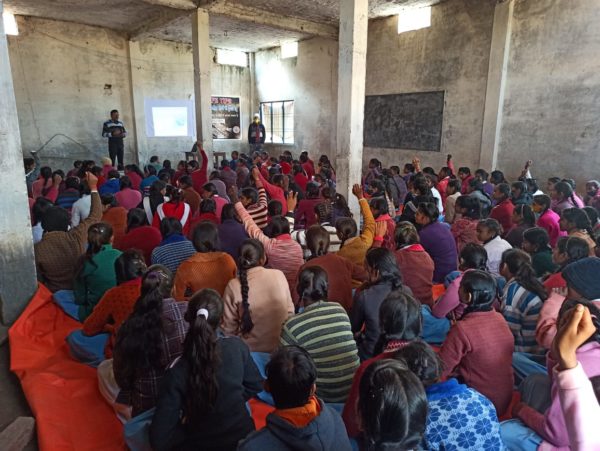Free the Slaves programs are doing more than helping people break free and stay free. They’re demonstrating that our community education and empowerment approach is a successful strategy to help vulnerable people resist and overcome the injustice and indignity of slavery.
In that spirit, FTS Ghana & Haiti Program Manager Christy Gillmore spoke at the 11th Annual International Human Trafficking, Prostitution and Sex Work Conference at the University of Toledo recently. She spread the word about the FTS techniques we’re employing to combat restavek child domestic servitude in Haiti and several forms of child slavery in mining regions of Ghana.
Christy noted how our pilot project in Ghana is improving respect for children’s rights in mining communities. The project fostered an environment in which children will be protected from sexual exploitation, child slavery, child labor and other abuses. This was accomplished through the development of illustrated booklets used to guide community discussions. You can read about the project and its results in our 2014 report, Child Rights in Mining.
Christy also noted how community education and dialogue techniques have also been utilized in our Haiti program, prompting parents to retrieve children who’d been sent away from rural villages to work as domestic servants in cities. You can read about the Haiti project and its results in our 2014 report and documentary.
With a wide array of attendees, Christy’s presentation at the University of Toledo contributed to the growing body of knowledge about successful front-line interventions and monitoring and evaluation techniques in the anti-slavery movement.
You can read more about the FTS community-based model for fighting slavery here.

